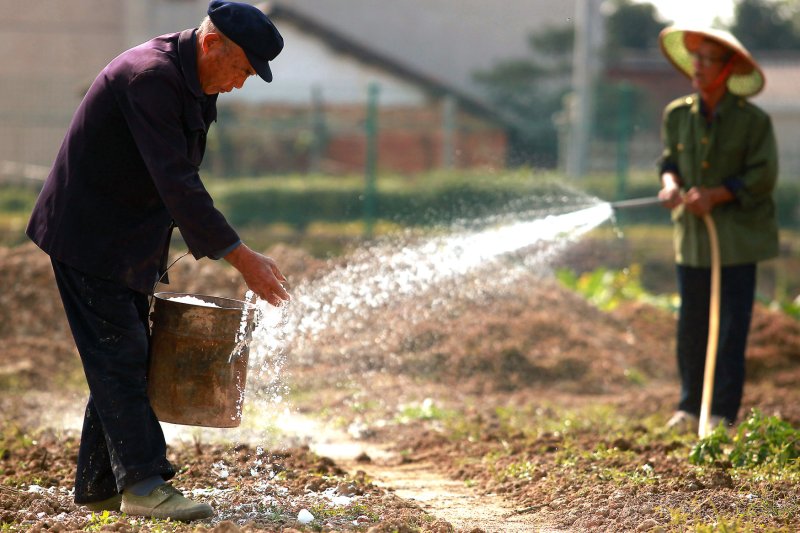A Chinese farmer plants seedlings on an organic farm. Concerns over the risks of pesticide overuse and monocultures has inspired the demand for organic produce and thus natural ways of protecting plants from pests and pathogens. File photo by UPI/Stephen Shaver |
License Photo
GRAZ, Austria, May 19 (UPI) -- Pesticides have been a great boon to agricultural yields, but their benefits aren't unquestioned, and they don't come without ecological consequences. Some pesticides have been blamed for shrinking the populations of vital pollinators, and overuse can result in an arms race with quickly adapting pests.
As a way to limit agriculture's reliance on pesticides, researchers in Austria have been working on a more natural way to protect plants and their seeds from blight, pest and other pathogens.
The latest discovery of scientists at the Austrian Center of Industrial Biotechnology is the positive role bacteria can play in safeguarding precious plant seeds.
Researchers say the protective benefits of naturally occurring, plant-associated bacteria could soon be proactively employed as a buffer against crop-targeting pathogens. These bacterial bodyguards can also protect seeds from the risks of pesticide-infested soil.
The working relationship between bacteria and plants is similar to the role gut microbes play in preventing disease and infection in the human body. Scientists at the Austrian research center are working to isolate the combinations of microbes that work best with different plant strains.
"We want to know which genes are activated by which particular environmental conditions in order to ensure that the bacteria will be ideally matched with crops under the local conditions," researcher Christin Zachow explained in a press release.
Zachow has been working with Gabriele Berg on the topic of agricultural microbiotics for several years, and their work has been detailed in a number of scientific journals. Berg is a biotechnology professor at Graz University of Technology and a pioneer in the field of plant-associated bacteria.
Berg and her colleagues say that if this new technology can be perfected, beneficial bacteria can be planted directly alongside vulnerable seedlings on working farms.
"We strive to develop plants with optimal health to provide consumers with an optimal basis for a healthy diet," Zachow said, "a functioning biological plant protection system offers a viable alternative to pesticides."















